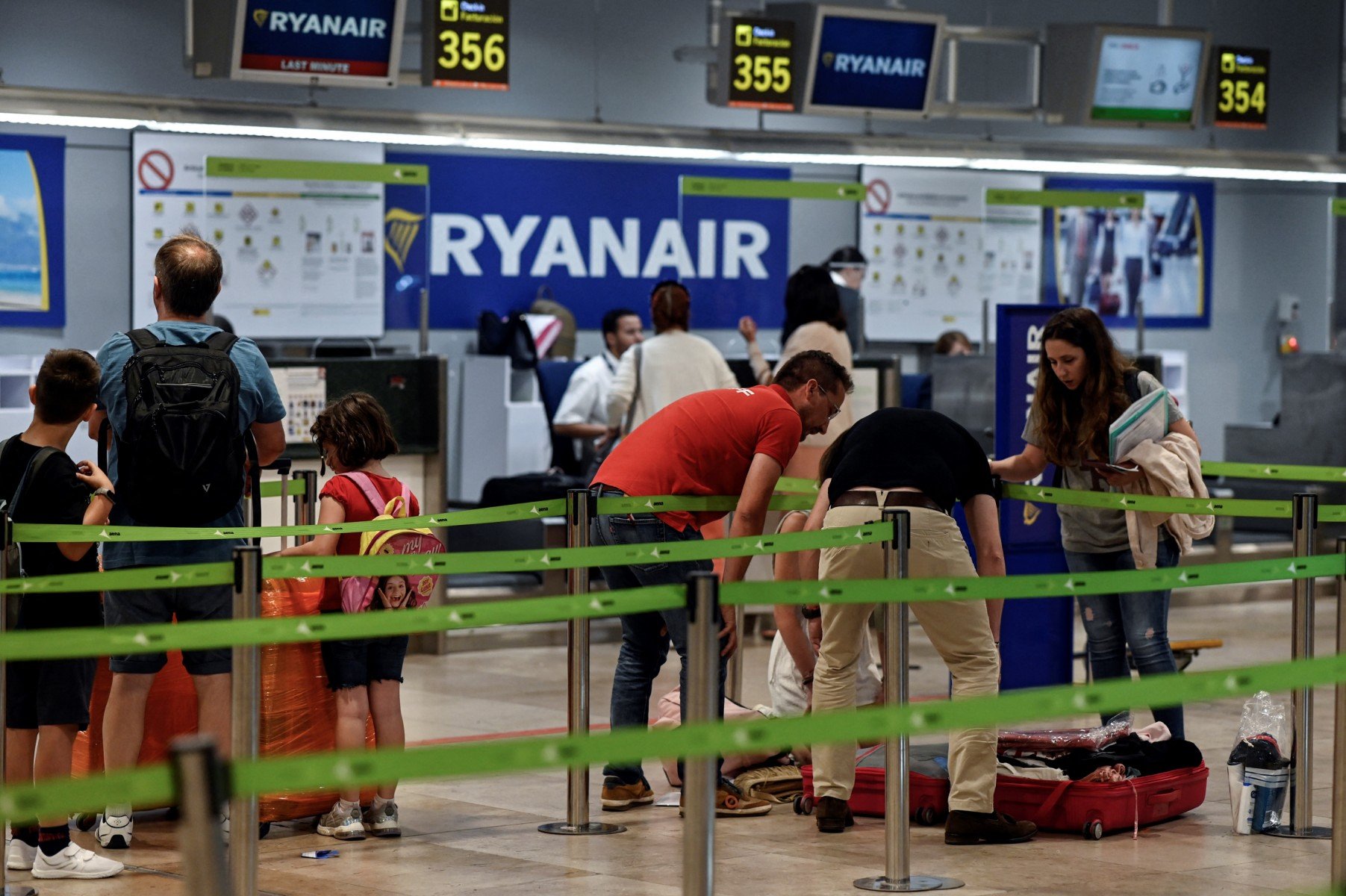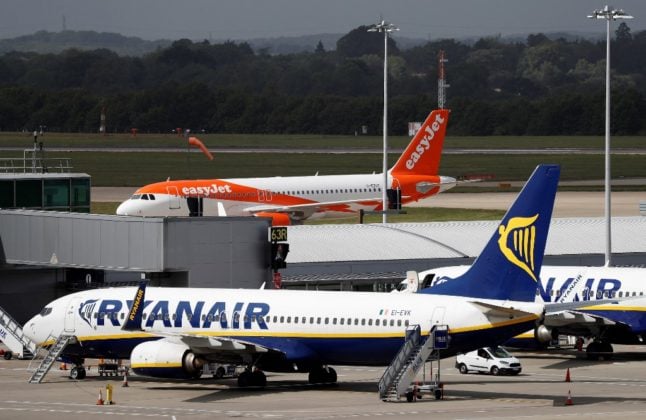April is a big month for budget airline anniversaries in the Bundesrepublik: Ryanair first landed at Frankfurt’s Hahn Airport 25 years ago in April 1999, and EasyJet is also celebrating its 20th anniversary in Berlin.
Both airlines have expanded greatly since stepping into the German market. Ryanair, which had served around 5 million passengers in 1999, now has 184 million guests annually and has grown into Europe’s largest flight provider. In the same time, EasyJet ramped up its service in Berlin, bringing more than 84 million passengers to and from the capital city.
All of which is to say that the beginning of the 21st century was a good time to be in the budget airline business, at least up until the beginning of the Covid pandemic.
But more recently the industry has contracted in Germany while it continues to grow elsewhere in Europe.
According to the latest flight schedule analysis by the German aviation industry association (BDL), direct airlines are expanding their flight schedules in Europe at a level that hasn’t been seen since the Covid pandemic.
In the next six months, Ryanair will offer 17 percent more seats on the continent than in the same period of the pre-pandemic year 2019. In Germany, on the other hand, which is weakening overall, they only have 78 percent of the previous supply – a decline of 22 percent.
For its part, EasyJet had reduced its presence at the Berlin Brandenburg Airport (BER) from 18 to 11 aircraft for the 2023 winter flight schedule. However, the company points out that they are expanding their capacity at BER this summer.
EasyJet told The Local: “We have increased our capacity at BER with 200,000 seats for summer 2024…[including] five new routes this summer to Antalya, Izmir, Birmingham, Toulouse and Salerno.”
READ ALSO: What intercontinental flights can I get from smaller German airports?
Budget airlines are looking for bluer skies
Both Ryanair and EasyJet suggest that fees and operating costs at German airports have gotten too high.
“Berlin is among the most expensive airports we operate from,” EasyJet told The Local, adding, “Airport costs represent about 20 percent of EasyJet’s operating costs and are the second largest cost after fuel.”
The company suggests that these costs make up a large proportion of passenger ticket prices for short haul trips, and therefore high airport fees are limiting its ability to stimulate demand.
Representatives from Ryanair have made statements along similar lines. “The German aviation market is broken, and the government lacks a sensible airline policy,” Ryanair marketing chief Dara Brady said at a recent anniversary ceremony, according to the German Press Agency (DPA).
In particular, both airlines are not happy about a passenger tax hike which is coming into effect on May 1st. The German aviation tax (Luftverkehrsabgabe) will increase by about 20 percent, and will add a cost of at least €15.53 to one-way European flights, which will be reflected in higher ticket prices for customers.
READ ALSO: Everything that changes in Germany in May 2024
EasyJet told The Local that it is “disappointed with the increase of the passenger tax”, and that the “cost increase will result in higher fares for consumers and damage Germany’s connectivity”.
In addition to passenger taxes, there are also handling costs, take-off and landing fees, as well as fees for security checks on the ground and air traffic control. These costs vary between airports, and directly impact airlines’ plans to expand or curtail operations in a given location.
For example, when Frankfurt Main Airport offered temporary discounts on take-off and landing fees in 2017, Ryanair moved a large part of its Hahn fleet temporarily to the Main.
As operating costs have steadily creeped up in Germany, budget airlines have looked increasingly to other countries for their expansion plans.
But that doesn’t mean budget airlines can afford to ignore Germany completely. EasyJet maintains that Berlin and Germany are still “a key market for the company”, and last autumn Ryanair suggested that it is aiming to increase its German market share.

In particular Ryanair aims to expand at Frankfurt’s Hahn, in Weeze on the Lower Rhine, in Memmingen, Karlsruhe/Baden-Baden and Nuremberg.
What should a passenger flight cost?
Despite mounting costs and taxes that airlines complain about, the fact remains that plane tickets are commonly cheaper than equivalent train tickets despite the much higher energy use involved.
That plane tickets can be offered at such low prices is largely explained by the fact that the aviation industry is among the most undertaxed and overly subsidised sectors of the economy.
Airlines aren’t charged VAT or a kerosene tax when they fly between many European destinations today. When the same journey is made by train, rail companies are charged both.
In this sense, Germany’s passenger tax hike on May 1st can be seen as a very small step toward levelling the playing field so that ground transportation options become more competitive.
“In a climate crisis, giving tax exemptions to a super polluting sector is incompatible with the challenges of today,” Jo Dardenne, the aviation director at the clean transport campaign group Transport and Environment, told Euronews following an announcement that France would hike its taxes on flights last year.
Compared to the amount of money pumped into fossil fuel subsidies that airlines rely on, Germany’s passenger tax hike is small change.
According to reporting by Investigate Europe, Germany spends the most to support cheap fossil fuels out of all European member states, with German taxpayers doling out €12.5 billion annually in support for the aviation sector, as of 2020.
READ ALSO: Germany to grant big industry firms subsidies to clean up their act
Still, commercial airline passengers in Germany will certainly not to be happy to see the price of flights rising. Customers can expect to pay between €15.53 and €70.83 more for flights scheduled after May 1st.
With reporting by DPA



 Please whitelist us to continue reading.
Please whitelist us to continue reading.
Member comments